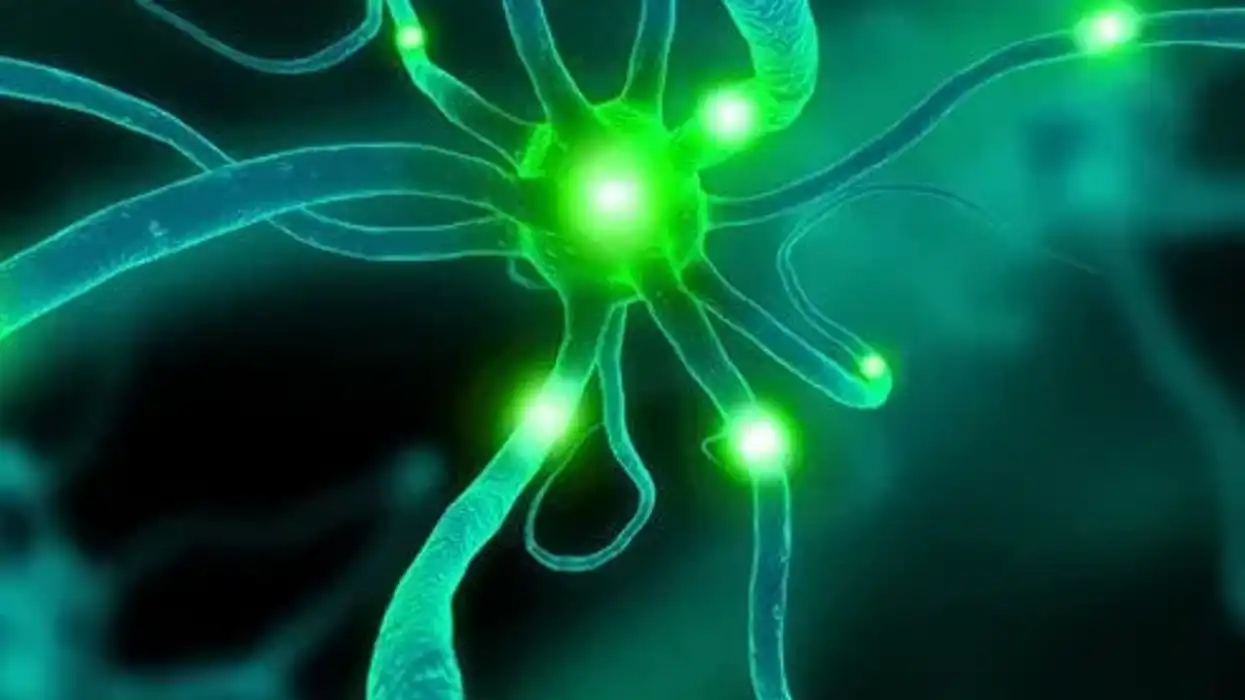Reviewed By: Jennifer Casarella, MD
Myth: Hard Work Beats Depression

Depression affects nearly one in six people at some point in their lives, so folk remedies and half-truths about this common illness abound. One such idea: throw yourself into work and you'll feel better. For a mild case of the blues, this may indeed help, but depression is a different animal. Overworking can actually be a sign of clinical depression, especially in men.
Myth: It's Not a Real Illness

Depression is a serious medical condition -- and the top cause of disability in American adults. But it's still confused with ordinary sadness. Biological evidence of the illness comes from studies of genetics, hormones, nerve cell receptors, and brain functioning. Nerve circuits in brain areas that regulate mood appear to function abnormally in depression.
Fact: Men Fly Under the Radar

A depressed man, his loved ones, and even his doctor may not recognize depression. That's because men are less likely than women to talk about their feelings -- and some depressed men don't appear sad or down. Instead, men may be irritable, angry, or restless. They may even lash out at others. Some men try to cope with depression through reckless behavior, drinking, or drugs.
Myth: Depression Is Just Self-Pity

Our culture admires will power and mental toughness and is quick to label anyone who falls back as a whiner. But people who have clinical depression are not lazy or simply feeling sorry for themselves. Nor can they "will" depression to go away. Depression is a medical illness -- a health problem related to changes in the brain. Like other illnesses, it usually improves with appropriate treatment.
Fact: Anyone Can Get Depressed

Poet or linebacker, shy or outgoing, anyone from any ethnic background can develop depression. The illness is twice as common in women as in men, but it may be that women are more likely to seek help. It's often first noticed in the late teens or 20s, but an episode can develop at any age. Tough personal experiences can sometimes trigger depression in people who are at risk for the illness. Or it may develop out of the blue.
Fact: It Can Sneak Up Slowly

Depression can creep up gradually, which makes it harder to identify than a sudden illness. A bad day turns into a rut and you start skipping work, school, or social occasions. One type, called dysthymia, can last for years as a chronic, low-level illness – a malaise that silently undermines your career and relationships. Or depression can become a severe, disabling condition. With treatment, many feel substantial relief in 4-6 weeks.
Myth: Help Means Drugs for Life

Despite the buzz about a "Prozac Nation," medication is only one of the tools used to lift depression. Asking for help doesn't necessarily mean your doctor will advise medications, although medicines can often be very helpful for significant forms of depression. Studies suggest, though, that "talk" therapy works as well as drugs for mild to moderate depression. Even if you do use antidepressants, it probably won’t be for life. Your doctor will help you determine the right time to stop your medication.
Myth: Depressed People Cry a Lot

Not always. Some people don't cry or even act terribly sad when they're depressed. Instead they are emotionally "blank" and may feel worthless or useless. Even without dramatic symptoms, untreated depression prevents people from living life to its fullest -- and takes a toll on families.
Fact: Family History Is Not Destiny

If depression appears in your family tree, you're more likely to get it too. But chances are you won't. People with a family history can watch for early symptoms of depression and take positive action promptly -- whether that means reducing stress, getting more exercise, counseling, or other professional treatment.
Myth: Depression Is Part of Aging

Most people navigate the challenges of aging without becoming depressed. But when it does occur, it may be overlooked. Older people may hide their sadness or have different, vague symptoms: food just doesn't taste good anymore, aches and pains worsen, or sleep patterns change. Medical problems can trigger depression in seniors -- and depression can slow recovery from a heart attack or surgery.
Fact: Depression Imitates Dementia

In seniors, depression can be the root cause of memory problems, confusion, and in some cases, delusions. Caregivers and doctors may mistake these problems for signs of dementia, or an age-related decline in memory. Getting treatment lifts the cloud for the majority of older people with depression. Psychotherapy can also be a useful part of treatment for older adults with depression who may be coping with loss, medical illnesses, or other life changes.
Myth: Talking Makes Things Worse

People were once advised not to "dwell on" problems by talking about them. Today, there's evidence that guided discussions with a professional can make things much better. Different types of psychotherapy help treat depression by addressing negative thought patterns, unconscious feelings, or relationship troubles. The first step is to talk to a mental health professional.
Fact: Positive Thinking May Help

The old advice to "accentuate the positive" has advanced into a practice that can ease depression. It’s called cognitive behavioral therapy (CBT). People learn new ways of thinking and behaving. Distorted negative self-talk and behavior is identified and replaced with more accurate and balanced ways of thinking about yourself and the world. Used alone or with medication, CBT works for many people.
Myth: Teens Are Unhappy by Nature

Although many teens are moody, argumentative, and intrigued by "the dark side," prolongued sadness or irritability is not normal for teens. When unhappiness lasts more than two weeks, it may be a sign of depression -- which develops in about one in 11 teens. Other signs a teen may need help include: being constantly sad or irritable even with friends, taking no pleasure in favorite activities, or a sudden drop in grades.
Fact: Exercise Is Good Medicine

Very good studies now show that regular, moderately intense exercise can improve symptoms of depression and work as well as some medicines for people with mild to moderate depression. Exercising with a group or a good friend adds social support, another mood booster.
Myth: Depression Is Tough to Treat

The reality is most people who take action to lift their depression do get better. In a large study by the National Institute of Mental Health, 70% of people became symptom-free through medications -- though not always with the first medicine. Studies show that the best treatment is often a combination of medication and talk therapy.
Fact: It's Not Always Depression

Some life events cause sadness or disappointment, but do not become clinical depression. Grief is normal after a death, divorce, loss of a job, or diagnosis with a serious health problem. One clue of a need for treatment: the sadness is constant every day, most of the day. When people are weathering difficult times appropriately, they can usually be distracted or cheered up for short periods of time.
Fact: Hope for Better Days Is Real

In the depths of depression, people may think there's no hope for a better life. This hopelessness is part of the illness, not a reality. With treatment, positive thinking gradually replaces negative thoughts. Sleep and appetite improve as the depressed mood lifts. And people who've seen a counselor for talk therapy are equipped with better coping skills to deal with the stresses in life that can get you down.









 Karla Mingo believes that her greatest gift as a cancer survivor is the ability to live with gratitude and thankfulness.
Karla Mingo believes that her greatest gift as a cancer survivor is the ability to live with gratitude and thankfulness.




 Dr. Cary S. Kaufman teaches the "Essentials of Oncoplastic Surgery" course through the National Consortium of Breast Centers, providing breast surgeons around the world with advanced techniques for optimal breast surgery outcomes.
Dr. Cary S. Kaufman teaches the "Essentials of Oncoplastic Surgery" course through the National Consortium of Breast Centers, providing breast surgeons around the world with advanced techniques for optimal breast surgery outcomes.